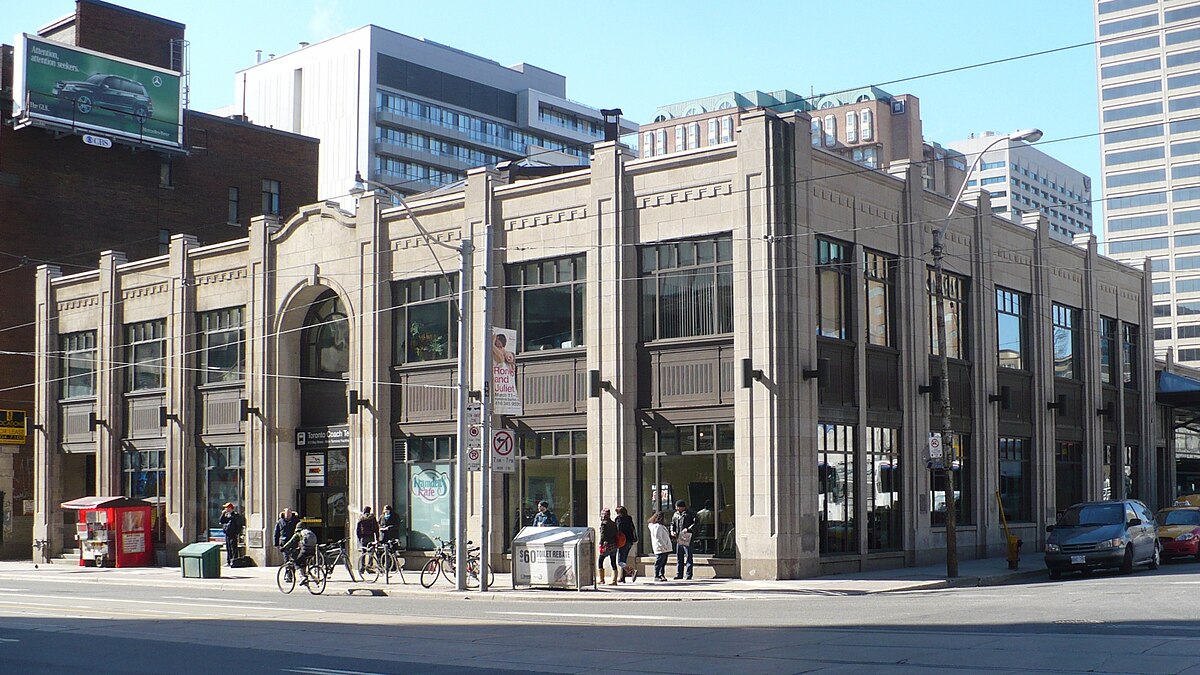Preferred team announced for Coach Terminal redevelopment
Plans include adaptive reuse of the heritage Toronto Coach Terminal and bus bays.

Key Takeaways:
- The redevelopment of 610 Bay St. and 130 Elizabeth St. will create a mixed-income, mixed-use community with 873 purpose-built rental homes, including 290 affordable units, along with retail, public spaces, and a Toronto Paramedic Services hub.
- The project integrates adaptive reuse of the heritage Toronto Coach Terminal, sustainable features like a geothermal energy system, and a design inspired by Indigenous principles, aiming to exceed Toronto’s Green Standards and achieve Zero Carbon Building Certification.
- Partnerships with the University Health Network, Hospital Workers’ Housing Co-operative, and community organizations will provide housing for essential workers, while additional features like a public plaza and organ repair center underline the development’s community-centric approach.
The Whole Story:
The City of Toronto and CreateTO have announced the Kilmer Group and Tricon Residential (Kilmer-Tricon) as the preferred proponents for the redevelopment of the City-owned sites at 610 Bay St. and 130 Elizabeth St. – home to the decommissioned Toronto Coach Terminal.
The properties will be redeveloped into a mixed-income, mixed-use development including affordable housing, a new Toronto Paramedic Services hub and employment opportunities with a focus on innovative uses that take advantage of the unique location within the city’s Discovery District. The redevelopment will also include the adaptive reuse of the existing heritage building as well as streetscape improvements.
“We need to build more affordable homes in Toronto,” said Mayor Olivia Chow. “That’s why I am so pleased that this project will transform the former Toronto Coach Terminal into not only new rental and affordable housing, but a thriving hub with healthcare facilities and space for small business to start and grow. This project sets a high bar for how we can build more homes, while celebrating our City’s history and embracing Indigenous knowledge as we build new communities.”
Consisting of two towers with residential, retail and public space, the development will be a 100% purpose-built rental project, delivering 873 new homes including 290 affordable rental homes.
The design vision for the site, led by award-winning architectural firms Studio Gang, architects-Alliance and Smoke Architecture, with landscape design by CCxA, is rooted in the Indigenous principle of the Seven Directions. The goal is to create a complete community that puts people first, invigorates the surrounding area and creates tree-lined public spaces that connect the surrounding neighbourhoods.
Additional project features include:
- adaptive reuse of the heritage Toronto Coach Terminal and bus bays
- a new 23,000-square-foot Toronto Paramedic Services Hub that will provide vital emergency support to surrounding communities
- a partnership with University Health Network which intends to operate a state-of-the-art organ repair centre for heart, lung, kidney and liver transplants
- affordable housing partnerships with the University Health Network, and the Hospital Workers’ Housing Co-operative to provide housing options for essential hospital workers and their families, as well as Woodgreen Community Services, the March of Dimes and Wigwamen
- a new public plaza positioned between the two buildings, which will create an urban oasis and incorporate a series of ‘outdoor rooms’
- a geothermal district energy system and sustainable building design, exceeding the requirements of the Toronto Green Standard and the Canadian Green Building Council’s Zero Carbon Building Design Certification.
Completion of construction and leasing of rental homes at 610 Bay St. is expected in first quarter of 2029 and in Q1 2030 for 130 Elizabeth St.
The properties at 610 Bay St. and 130 Elizabeth St. were selected for redevelopment through the ModernTO program adopted by Toronto City Council in October 2019 and are part of eight high-value City-owned sites identified as being currently underutilized, with opportunities to unlock value and address City needs.
More information about this project can be found on the CreateTO website .
